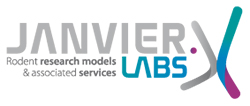An experimental model for the study of long-term parenteral nutrition in pig. Morbidity, microbiological and biochemical findings
DOI:
https://doi.org/10.23675/sjlas.v21i2.746Abstract
We have established an animal model for studies of total parenteral nutrition (TPN) regimen. Pigs were given long-term lipid based TPN after a formula recommended to children. Central venous catheter colonization rate was not significantly
raised in entirely parenterally fed animals. In the same animals, intestinal microflora-associated characteristics and light microscopic evaluation of the intestinal mucosa indicated a quantitative intact mieroflora and absence of mucosal atrophy.
Still morbidity was significantly higher in entirely parenterally fed animals given the same caloric load as enterally ted. Since there was a dietary substance (lat, protein and carbohydrate) unbalance, however, it is impossible to conclude whether
the TPN was insufficient or had adverse efleets. The model will permit further investigtion of such TPN effects.







